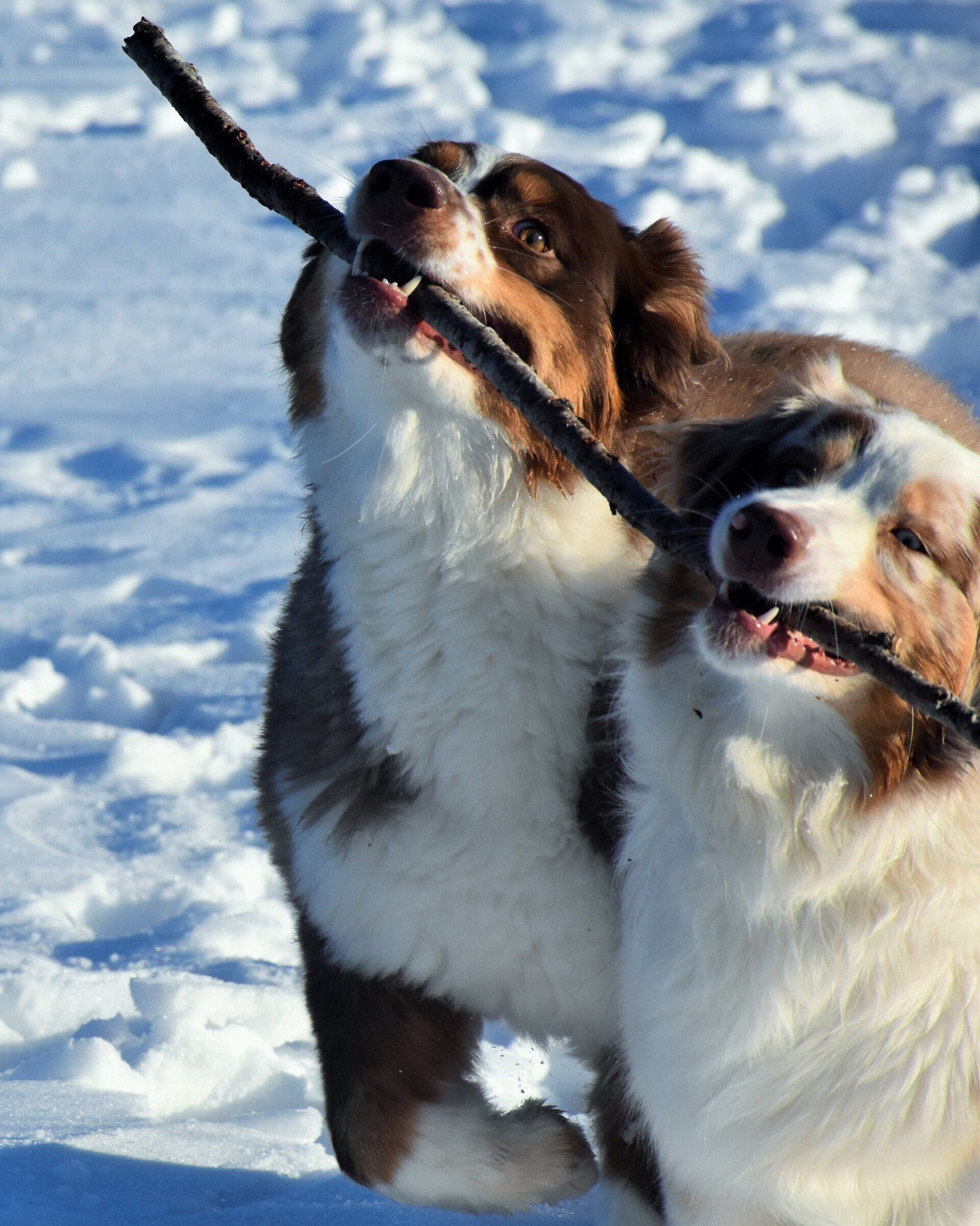Common Questions about Kennel Cough

Common Questions about Kennel Cough
Dr. Rachel Morgan – BEVS, Burlington, VT
1.) What is the underlying cause of “kennel cough”?
Kennel cough, or infectious tracheobronchitis, is a general phrase that can refer to a number of underlying causes. While many people use the term “kennel cough” to refer to respiratory infections caused by the bacteria Bordetella bronchiseptica, there are a multitude of viruses and bacterial agents that can cause a dog to develop a cough. If your dog begins coughing, it is important to have a physical exam performed by your regular veterinarian to rule out any other underlying causes.
2.) My dog was fully vaccinated and still contracted kennel cough—how could this happen?
While Bordetella vaccinations offer protection against infections caused by the bacteria, they cannot prevent 100% of infections, and they cannot offer immunity against other bacterial or viral causes of infectious tracheobronchitis. Despite its shortcomings, there is evidence that the Bordetella vaccine can help decrease the overall number and severity of infections. A naturally occurring infection does not provide immunity against future infections.
3.) How can I tell the difference between kennel cough and canine influenza?
Definitive identification of the underlying cause requires sending samples from an infected patient’s nose and throat to a diagnostic laboratory. In cases where symptoms appear mild, additional testing is often not performed. However, in cases where the dog is lethargic, has a fever or lack of appetite, your veterinarian may recommend additional diagnostics such as blood work, chest X-rays and more samples.
4.) My dog has not spent time in a boarding kennel—how could he have kennel cough?
Many causes of respiratory infections are extremely contagious, and dogs can become exposed by close contact with another infected dog in a variety of settings including dog parks, daycare facilities and training classes. These facilities attempt to limit the spread of infection by requiring proof of vaccination and directing owners of animals with these symptoms to keep their dogs at home.
5.) Why are Bordetella and other respiratory infections so contagious?
Many viruses and bacteria like B. bronchiseptica prefer to establish themselves within the lining of a dog’s airway. The bacteria or virus is then released into the air each time an animal coughs, producing a source of infection for other animals. As a result, any dog with a suspected respiratory infection should be kept away from other dogs for at least one week after all symptoms have completely resolved.
6.) If my dog is exposed to an animal with kennel cough, how long will it take him or her to develop symptoms? What symptoms should I watch out for?
The incubation period ranges from 2-14 days. The most common clinical signs include the abrupt onset of a dry, hacking cough that often ends with a retching noise. Some animals may also experience fever, nasal discharge, lack of appetite and lethargy. Although there is the chance that a mild respiratory infection may become more serious, most infections are typically self limiting and show as a mild cough that lasts 1-2 weeks. However, even if your animal’s symptoms are mild it is important to schedule a physical examination with your regular veterinarian.
7.) Are respiratory infections like Bordetella and Canine Influenza transmissible to humans or other pets, other than dogs?
These infections are strains that are specific to dogs, and cannot be passed on to humans, felines or other non canine pets.
8.) My dog’s cough worsened even after being placed on oral antibiotics—why would this happen?
Coughing can become a vicious cycle even in patients with a mild infection. Coughing is a result of inflammation caused by the actions of a viral or bacterial infection. However, the action of coughing can also lead to additional local irritation and inflammation. If you feel your dog’s episodes of coughing are frequent and severe enough, that they interfere with eating, drinking and sleeping, speak to your regular veterinarian. Ask whether or not a cough suppressant should be prescribed. Respiratory infections often need time to run their course, and it is not unusual for patients to have a pronounced cough for 1-2 weeks even with antibiotic therapy. During this time, it is important to keep your veterinarian updated as to how your dog is doing at home, in regards to appetite and energy. If you see changes in these areas, or if your dog seems to have any difficulty breathing comfortably, seek prompt medical attention.
9.) Is there a vaccine available? How often should my dog be vaccinated against kennel cough?
There are currently injectable, intranasal and oral forms of the vaccine against Bordetella bronchiseptica available. According to the vaccination guidelines established by the American Veterinary Medical Association, the oral or intranasal form can be given as early as 8 weeks of age and can be boostered 2-4 weeks later. The injectable form is typically given as early as 8 weeks of age, with a booster given 4 weeks later. It is recommended that adult dogs that might be exposed to at-risk environments be vaccinated every 6-12 months.
The post Common Questions about Kennel Cough appeared first on 4 Legs & A Tail .








SEO and Design services provided by 4 Legs & A Tail. Privacy Policy.
The content of this website including but not limited to the images or any other marks are the property of their respective copyright owners and designers. All images and marks are used under license from their owners. Any copying or downloading without express written permission is a violation of copyright law and is prohibited.
Legal

